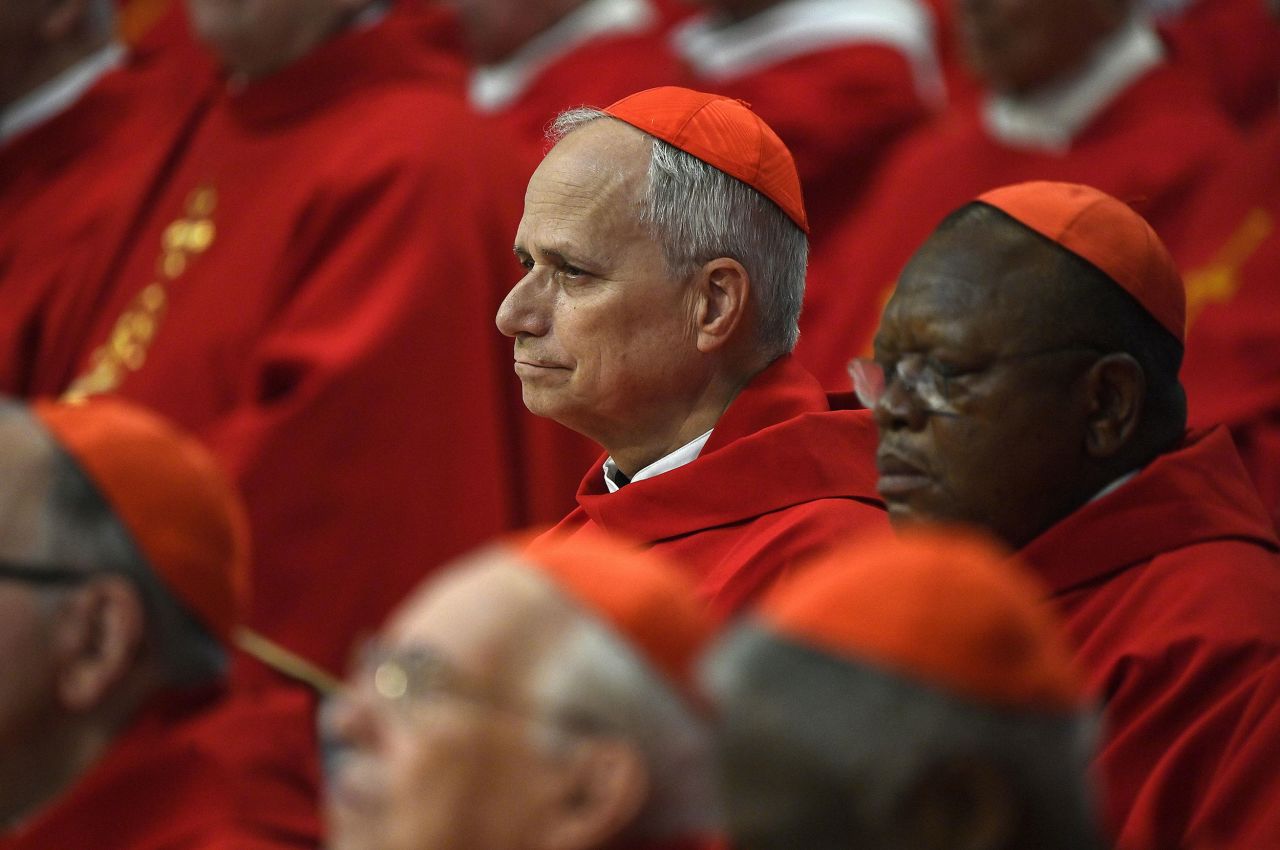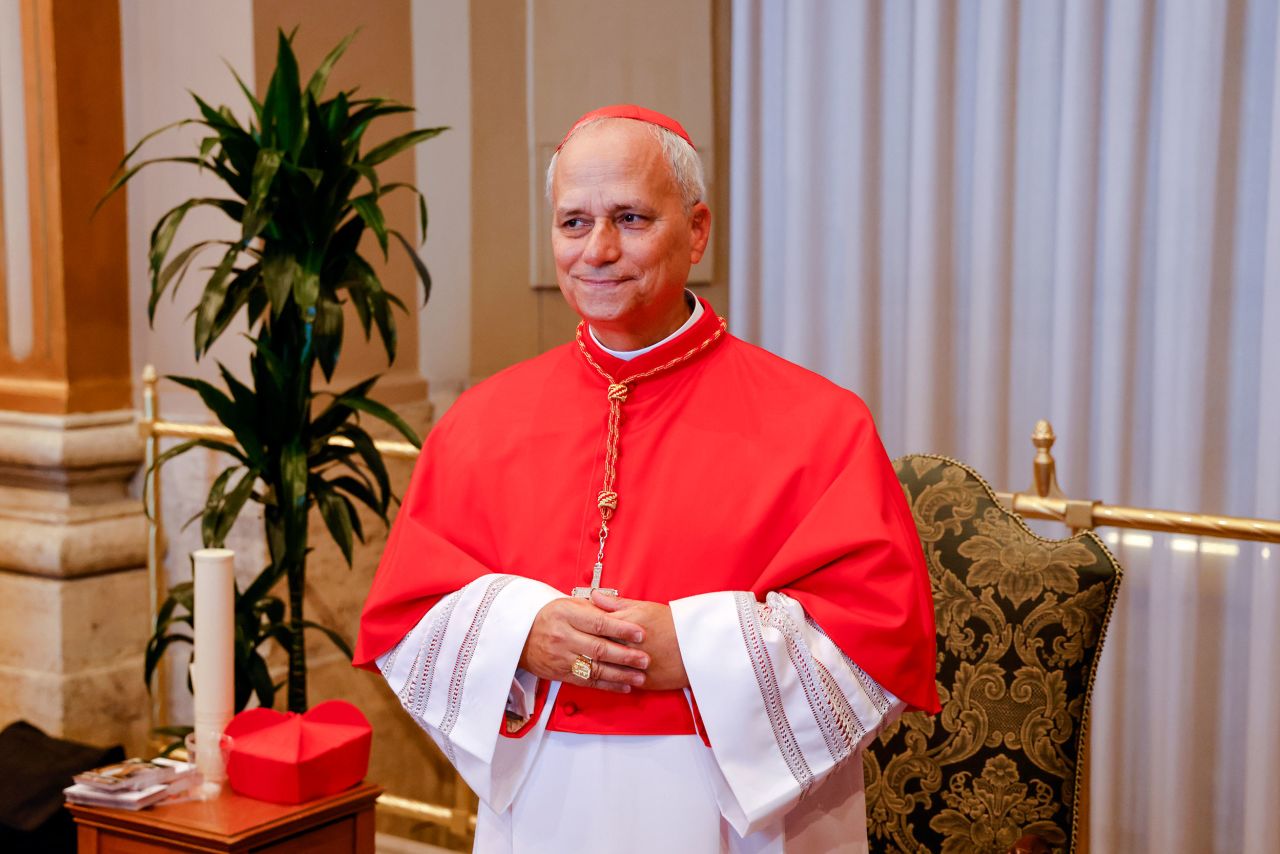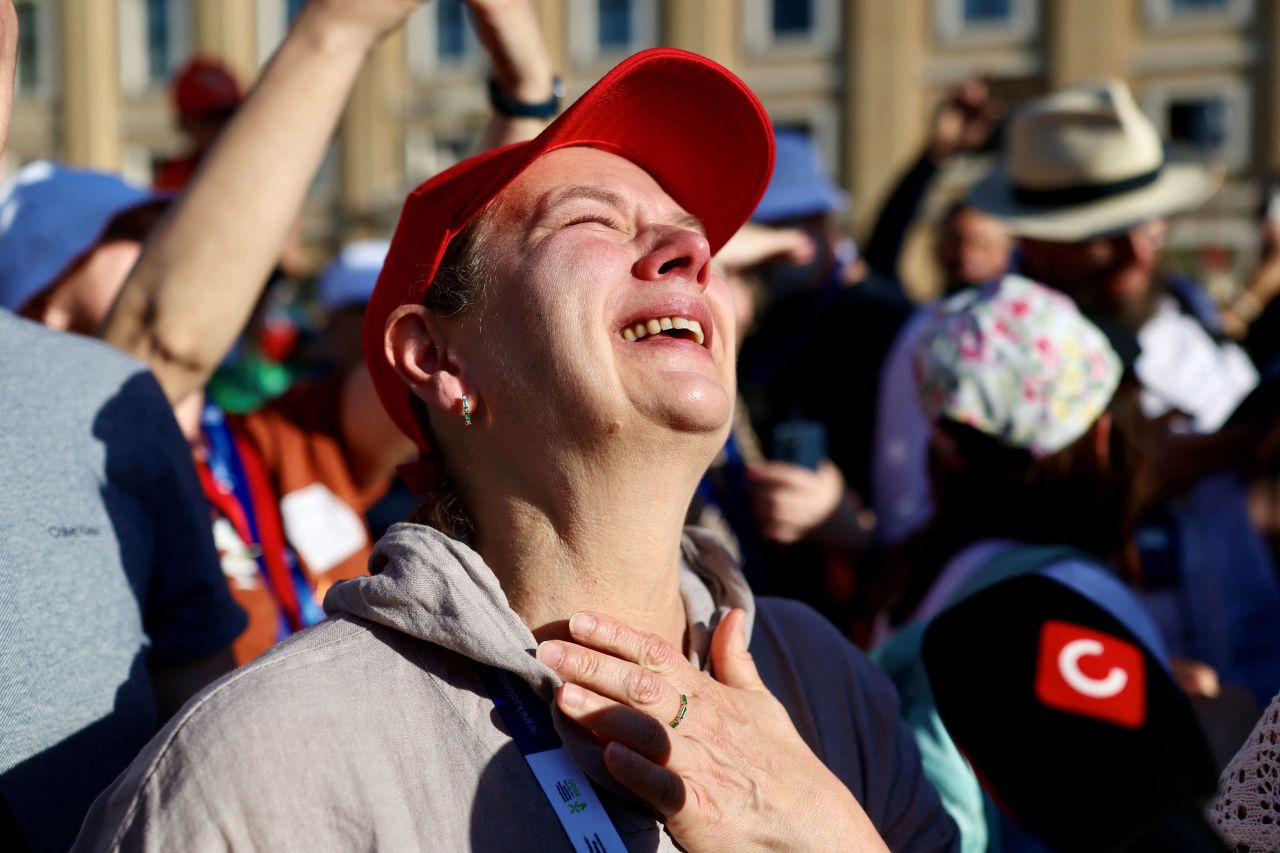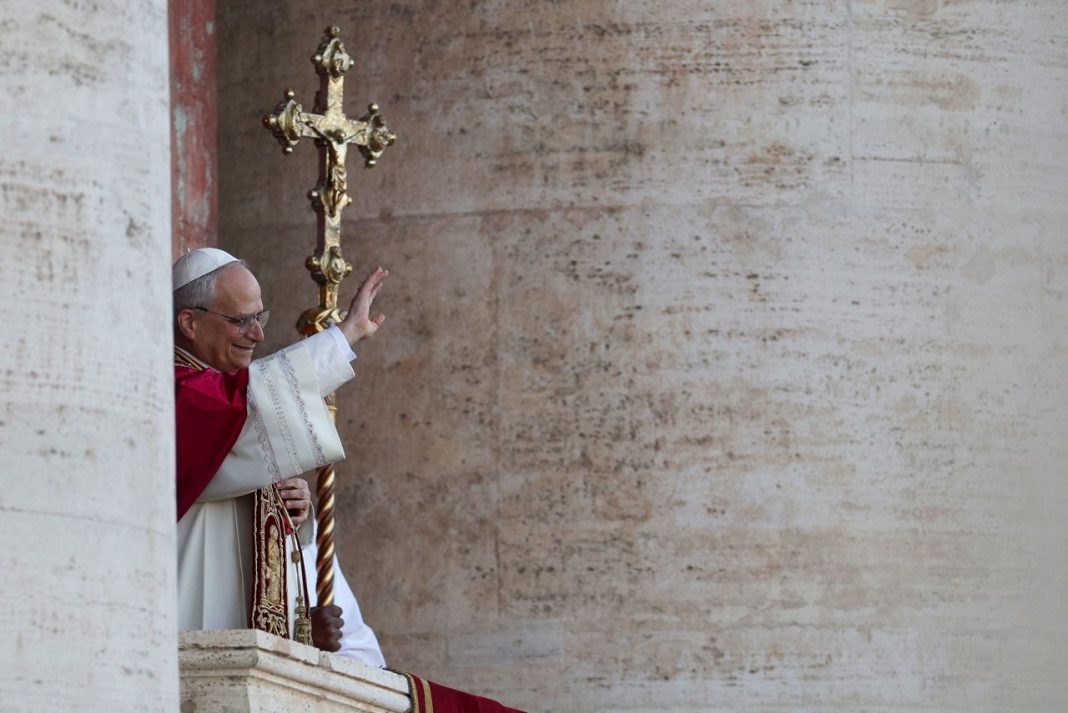VATICAN CITY – In a watershed moment for the Roman Catholic Church, Cardinal Robert Prevost of Chicago has been elected the 267th pope — the first American to hold the papacy.
Taking the name Pope Leo XIV, he emerged onto the balcony of St. Peter’s Basilica on Thursday evening to deliver his first blessing as the spiritual leader of over 1.4 billion Catholics worldwide.
The white smoke rose just before 7 p.m. local time on Thursday, May 8, 2025, and minutes later, the senior Cardinal Deacon stepped onto the loggia to proclaim the long-awaited words: “Habemus papam!” — “We have a pope!”
The crowd in St. Peter’s Square erupted as Prevost’s name was read in Latin, followed by his chosen papal name: Leo XIV.

A Name With Historical Weight
Pope Leo XIV becomes the 14th pontiff to adopt the name Leo, a title rich with symbolic meaning and historical precedent.
The last pontiff to bear the name, Leo XIII, served from 1878 to 1903 and is remembered as a pioneer of Catholic social teaching, particularly through his seminal 1891 encyclical Rerum Novarum, which addressed the rights of workers amid the upheavals of the Industrial Revolution.
Before him, Pope Leo I — known as Leo the Great — led the Church in the fifth century and famously persuaded Attila the Hun to retreat from invading Rome.
His meeting with the feared general, immortalised in a painting by Raphael, hangs in the Vatican’s Apostolic Palace — a corridor Cardinal Prevost walked through only days ago, unaware of the historical echoes his papal name would invoke.
The name Leo, derived from the Latin word for “lion,” is often associated with strength, courage, and pastoral authority.
By reviving a name unused in over a century, Leo XIV may be signalling a papacy grounded in moral clarity, social engagement, and fearless leadership.
A Global Church, An American Pontiff
Cardinal Prevost’s election reflects a global shift within the Church’s leadership.
Born and raised in Chicago, he previously served as the Prefect of the Dicastery for Bishops under Pope Francis and was widely respected for his pastoral approach and administrative discipline.
His election on the second day of the conclave followed two days of deliberation among the 133 cardinal electors, 108 of whom were appointed by Pope Francis.
The rapid consensus is viewed by many observers as a sign of broad support for Prevost’s vision of continuity — particularly with the priorities championed by his predecessor.

Continuity and Renewal
In his first public remarks as pope, Leo XIV referenced the legacy of Pope Francis, stating: “The Church can still hear the weak but always courageous voice of Pope Francis.”
The words were met with resounding applause from the square, where tens of thousands had gathered under fluttering flags and glowing candles.
Though he offered only a brief address before his Urbi et Orbi blessing, the new pontiff struck a tone of humility and resolve, pledging to lead the Church “in charity, in truth, and in hope.”
Observers believe that by choosing the name Leo, Prevost is aligning himself with a lineage of popes known for moral conviction in turbulent times — perhaps an early signal of his approach to guiding the Church through the 21st century’s complex social, economic, and spiritual challenges.

Reactions from Around the World
Reactions to the historic announcement poured in swiftly from across the globe. In the United States, church bells rang in parishes from coast to coast.
President of the U.S. Conference of Catholic Bishops, Archbishop Timothy Broglio, called the election “a moment of deep spiritual pride for American Catholics and a new opportunity for global unity.”
In Rome, the sense of occasion was palpable. “It’s more than history,” said Martina Conti, a pilgrim from Florence. “It feels like a new beginning — and not just for Americans, for all of us.”
As night fell over the Eternal City, the crowds lingered, singing hymns and reciting prayers in dozens of languages.
The bells of St. Peter’s rang again. The Church has a new shepherd — a lion-hearted one.
Leo XIV. An American pope. A global Church.







